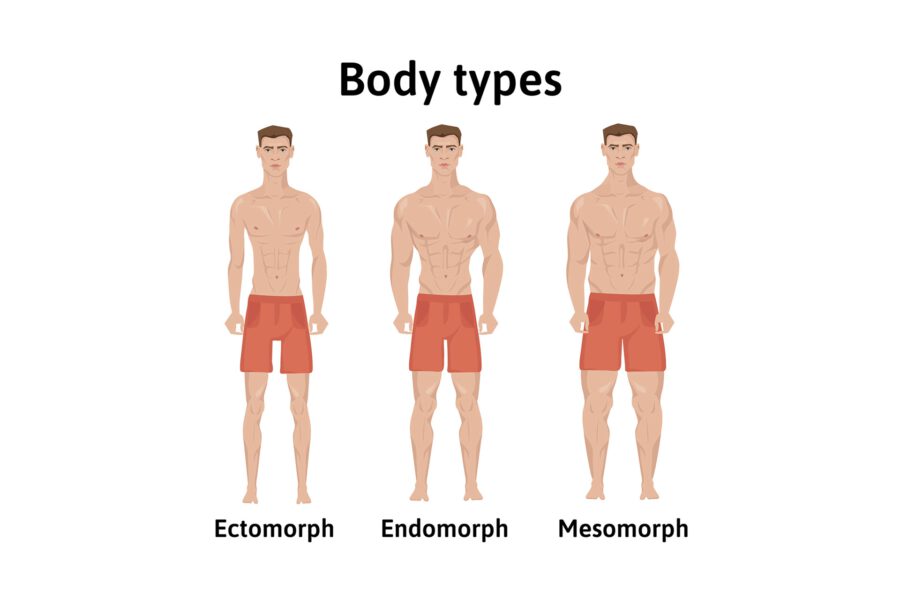How to Gain Weight and Build Muscle: A Guide for Skinny Guys
As a skinny hardgainer, hitting the gym can be a frustrating experience. You may feel like you're putting in all the effort for months but not seeing the desired results. Or it could be that your body is fluctuating in gaining and losing muscles or fats, making you look smaller on several occasions.
Most skinny guys have difficulty putting on weight and increasing their muscle size because they have a fast metabolism and tend to have a naturally lean body type. However, genetics and hormonal imbalances could also be at play. Sometimes, you could be a hardgainer simply because you don't eat that much and lack the nutrition to supplement bodybuilding.
Whatever the reason is, there are fundamental things you could control to ensure steady weight gain and build muscles more efficiently. This article will discuss how you can adjust several aspects of your training to achieve your desired body.
It's difficult to determine if you are a real "hardgainer" since it is not a medical condition, and it's not scientifically recognized. However, there are common defining features in people who consider themselves hardgainers:
- Skinny Frame
- Struggle to add muscle mass
- High metabolism
- Little or slow progress in the gym compared to other people
- High energy levels but have difficulty feeling full
- Difficulty maintaining weight
Some ectomorphs may also consider themselves hardgainers because they generally have more difficulty gaining weight than other body types. Ectomorphs are also characterized by a naturally lean build, long limbs, and fast metabolism.
It is essential to note that everyone's body is different and responds differently to exercise and nutrition. So while an ectomorph may have difficulty gaining weight and seeing results in the gym, it is definitely possible for them to make significant progress with the right approach.
Many start their fitness journey without a clear plan or are simply fueled by a fleeting burst of motivation, so they often can't follow through with their goals.
If you are going against your genetics, hormones, and many other factors, you better establish a clear action plan. Here are some tips on how you can effectively gain weight and muscles as a hardgainer:
Compound exercises such as squats, bench presses, and deadlifts allow greater muscle activation and stimulus for muscle growth. In addition, it targets multiple key muscle groups, which allows the development of aesthetic features and makes you look bigger.
Studies also show that compound exercises can improve hormonal responses to exercise by increasing testosterone and growth hormone levels which are crucial for muscle growth.
In other words, eat more (Not shot, sherlock!). A fast metabolism means you burn way more calories than others. And working out burns even more calories. So to consistently build muscles and gain weight, you need to consume more calories than you spend throughout the day.
You'll need about 2,800 calories to build a pound of muscle. You can safely gain weight and gradually pack muscles by adding 300 to 500 calories to your regular diet. Also, focusing on eating whole foods and including lots of protein can help muscle hypertrophy.
Remember eating more than 500 additional calories can lead to a significant amount of fat gain, which you would want to avoid. In addition, a drastic increase in your calorie intake might be unsustainable, so take it easy and focus on adding 250-300 calories every day and adjust accordingly.
Eating lots of whole foods can be daunting, especially if you are not a foodie, not to mention the additional cost that comes with it. That's why it is best to complement your efforts in the gym with sufficient nutrients and proper meal planning.
To optimize your meals for building muscle and gaining weight, you need to balance your consumption of macronutrients, such as carbohydrates, protein, and healthy fats.
- Aim to have at least 1.6g to 2.2g of protein per kilogram of your body weight daily. Include lean meat, fish, eggs, dairy, and plant-based proteins (beans, lentils, tofu, etc.)
- Consume 3 to 5 grams of carbs per kilogram of your body weight. Vegetables, whole grains, legumes, and fruits are excellent sources of carbs to provide energy for your workouts.
- Remember to add healthy fats to your diet, such as nuts, seeds, avocado, and olive oil. Good fats should be at least 20-30% of your daily caloric intake to support your hormone levels and absorption of key nutrients.
The best meal frequency for muscle growth depends on your schedule and lifestyle. You can eat more calories by dividing it into 3 large meals per day or by portioning your food intake into 5-6 meals daily. Since it depends on your preference, you have nothing to worry about if you get enough calories and balanced macronutrients to support muscle growth.
It is easy to start a weight gain and bodybuilding program once you have everything laid out. However, it is also easy to hit a wall and derail your progress, especially when you are stressed or overwhelmed.
Hence, tracking your calories is vital to ensure that you are hitting your goals every day and to ensure consistent progress over time. It doesn't need to be fancy, a good old notebook and pen are fine, or you can have a mobile app to help you track your calories.
Aside from putting in lots of time in the gym, you also need to progressively increase your weights. Many would spend months in the gym without realizing that they are plateauing and need to recalibrate their training.
As a general guideline, a good starting point for progressive overload would be to increase the weight you are lifting by 2-5% each week. This will allow you to gradually increase the stress on your muscles, which will promote muscle growth and strength gains.
Note that progressive overload should be applied to both compound and isolation exercises. Your focus should be on the quality of your exercise. Progressively increase your weights with emphasis on having good form and technique.
As you progress, you may need to adjust to smaller increments to continue making progress. For example, if you are getting close to your 1 rep max, change to a 1-2% weight increase per week.
Here’s a plan that will help apply progressive overload and build muscle effectively:
Rest is a crucial part of your training. You need sufficient downtime to allow your muscles to repair and recover from all the microtrauma of your workout.
It is recommended to have at least 1 rest day per week, and you need at least 7 hours of high-quality sleep every night to support your overall health.
Remember, too much rest or too little training frequency can also hinder your growth. As a hardgainer, you need to train at least 3-4 times per week to facilitate muscle growth and see significant results in your physique.
It might sound counterproductive since training burns tons of calories, but an optimal training schedule creates the right environment for growth. When you perform intense workouts, particularly compound lifts, it stimulates the increase in the production of testosterone and growth hormones creating a more anabolic environment for your muscles to develop.
This one is 100% optional. However, if hitting your target calorie intake is a problem, supplements can be your friends. Different supplements can aid your fitness journey, but the main bulk of your nutrition should always come from whole foods, no matter what.
Supplements should not use as replacements for a well-rounded diet and training. In addition, you should always consult a medical professional or personal trainer before getting into supplements. In addition, you should always follow the recommended dosage for you.
Here are some of the safest and most effective bodybuilding supplements for hardgainers:
Creatine can saturate your muscles, providing more energy and allowing better recovery. It also allows you to pump out a few more reps, which offers greater stimulation for hypertrophy and can increase fluid retention in your muscles, making you look "fuller" and slightly more pumped.
Protein powders can be an excellent source of additional protein that the body can easily absorb. Whey protein is made from milk and contains essential amino acids that the body needs for growth and repair.
Weight gainers are supplements that contain carbohydrates, protein, and healthy fats. They could be a valuable tool if you want to quickly add more mass or struggling to consume enough calories to support muscle growth.
It is essential to understand that achieving your goals, whether it's gaining muscle, losing weight, or cutting down fats, takes time and a lot of effort. Progress and results don't happen overnight. The key is to stay consistent and focus on the foundation of fitness- exercise and proper nutrition.
A personal trainer has years of experience with bodybuilding and fitness and can guide you to achieve your body goals. They can provide you with tailor-fit exercise routines and bodybuilding programs. They can also make you accountable and help you stick with your goals.
Building muscle and gaining weight as a hardgainer can be challenging but it is not impossible. You can gain weight and decent muscle mass with a well-rounded workout plan, proper nutrition, consistency, and patience.
Bodybuilding supplements can also aid muscle growth but should be used in addition to a proper diet and exercise program and be taken under the guidance of a healthcare professional or personal trainer. Remember, progress takes time and effort, but you can achieve your goals with the right approach.

